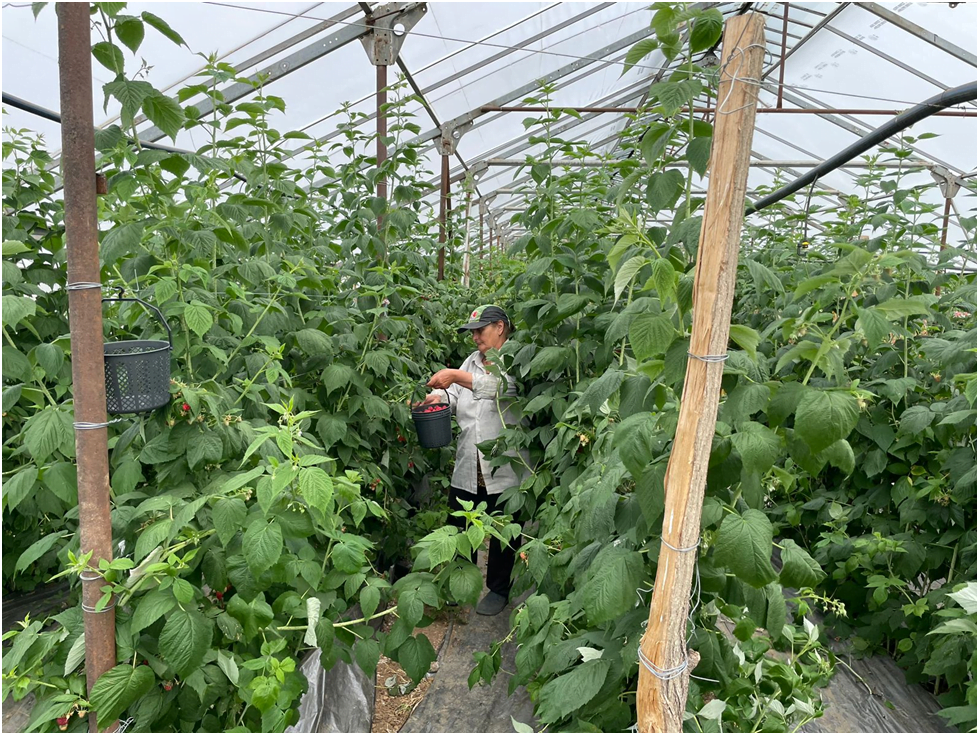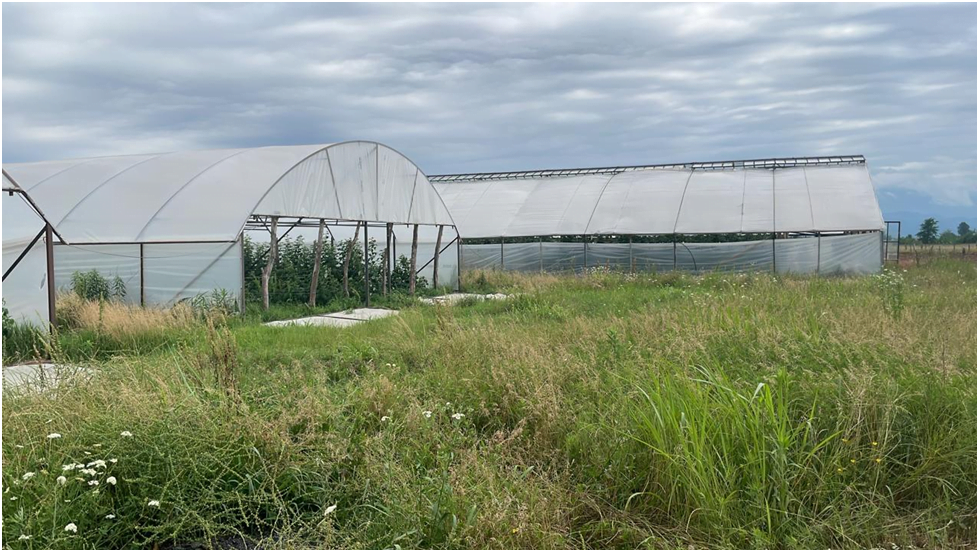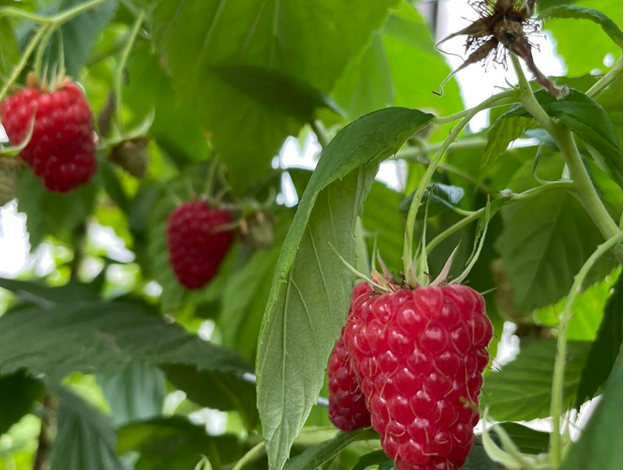Georgian farmers have begun selling the first raspberry harvest of the season, with initially soaring prices. Supermarkets are pricing raspberries at up to 30 GEL/kg ($11.5), while farmers are selling their produce on-site for 15-20 GEL/kg ($5.75-$7.66). It is worth noting that only a fraction of farmers has commenced harvesting at this point.
Raspberry harvesting is currently underway in multiple regions, except for the Shida Kartli region, which has become one of the main raspberry-producing regions in Georgia in recent years, where picking will begin in about 10 days. In Kakheti and Kvemo Kartli, where new berry orchards were established in recent years, several farmers have ceased production due to unfavorable climate conditions for open-field raspberry cultivation. Despite the challenges associated with open-field berry production in Georgia, raspberries are still mostly grown in this manner. However, some individual producers have started transitioning to production in high tunnels.

P&K Berries, a raspberry producer in Georgia, in the Imereti region, owns 4.6 hectares of raspberry orchards from which 4 hectares are open-field cultivation and 0.6 hectares – high tunnels. Vasil Purtseladze, the co-founder of P&K Berries, revealed in a discussion with EastFruit that production in the high tunnels is significantly more profitable, despite the relatively high initial investment.

The company has been growing raspberries indoors for the last two seasons, in four high tunnel greenhouses, one of which has a glass roof, and the rest three are covered with polyethylene. The investment in a high tunnel with an area of 600 square meters amounted to around 16,500 GEL ($6,322), covering the construction of an iron frame covered with polyethylene film. According to Purtseladze’s calculations, the invested amount should be withdrawn within two seasons.
“The decision to shift part of raspberry production to high tunnels was motivated by the challenges we face in the open field, such as declining quality and quantity of berries caused by adverse weather conditions. By growing raspberries in tunnels, we protect the berries and achieve earlier yields, coinciding with a period of high demand and favorable prices. With the absence of competitors during the early harvesting season, we sold first pickings with a price of 50 GEL/kg ($19.16). While the production in tunnels currently yields about half of what we harvest in the open field, the quality and corresponding price are significantly higher. Furthermore, we can harvest ripe berries promptly, unlike open field picking which is weather-dependent and can result in crop waste”, said Purtseladze.
According to Purtseladze, the company has plans to fully cover the orchard in the future, requiring an estimated investment of 600,000 GEL ($230,000), which he thinks will be justified.
The company started raspberry production three years ago with the financial support of Plant the Future program. Initially, the orchards were planted on 7 hectares, where they used locally sourced seedlings. According to Purtseladze, only about 20% of the seedlings planted initially survived after one year, and the rest withered, leading to significant losses and the need to restart the orchard from scratch. Subsequently, they purchased raspberry seedlings of the Amira variety from an Italian nursery two years ago. Drawing from his experience, Purtseladze believes that open-field raspberry production in Georgia is not viable for the fresh market, and it is more advantageous to cultivate a smaller area in a closed field.
The use of the site materials is free if there is a direct and open for search engines hyperlink to a specific publication of the East-Fruit.com website.




